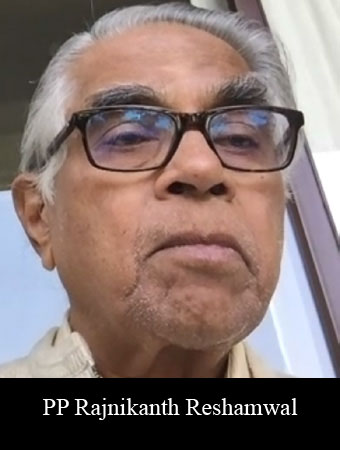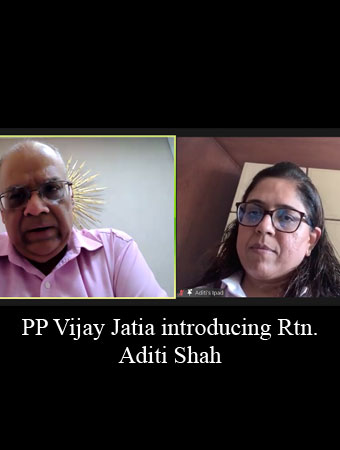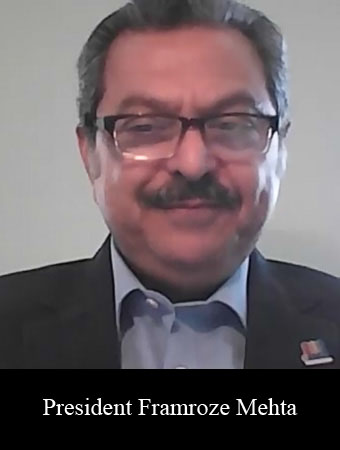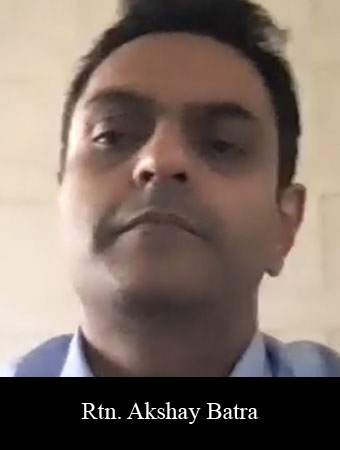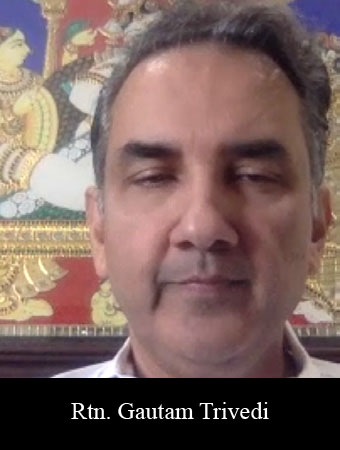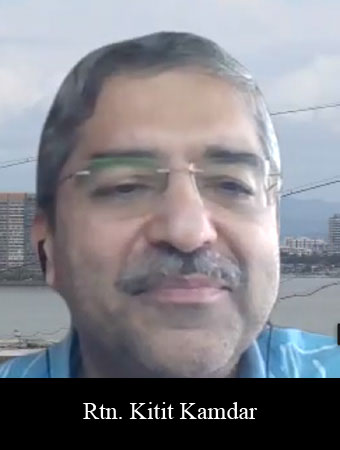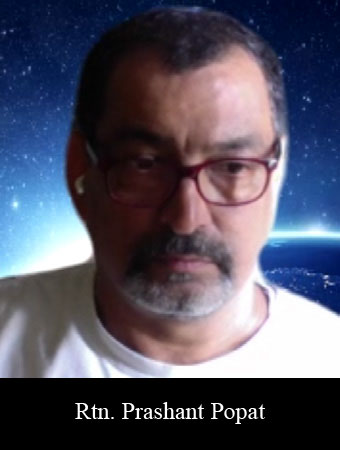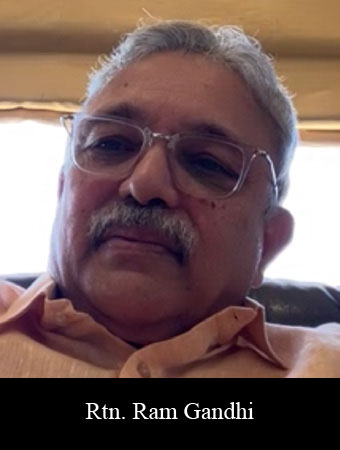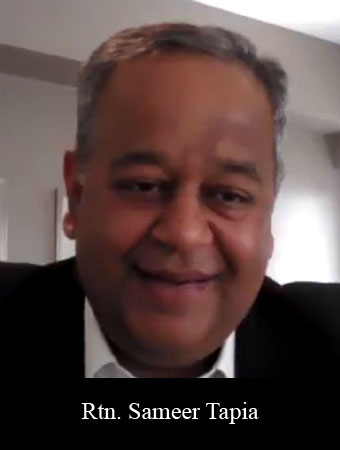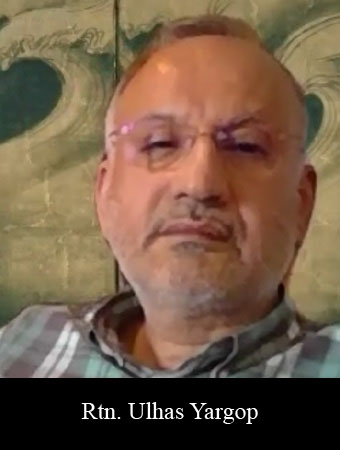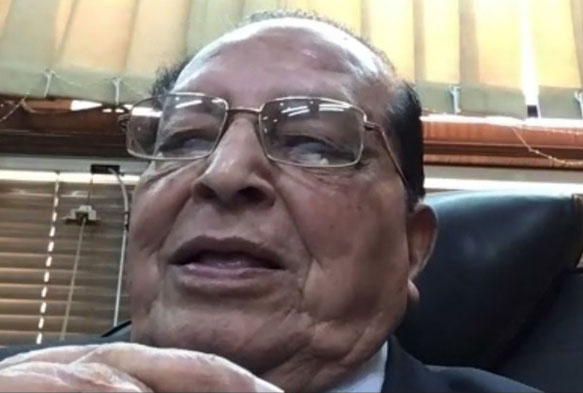
Eminent Lawyer & Tax Expert Yogendra Premkrishna Trivedi On Why You Should Pay Your Taxes
THIS SUBJECT IS OF SUCH A WIDE AMPLITUDE THAT I CAN ADJUST A SERIES OF LECTURES ON THAT.
The question that should be asked is, why should I NOT pay my taxes? Because, as in the same case of Commissioner of Wealth Tax vs Arvind Narottam Das, the Supreme Court Justice Sabyasachi Mukharji said that people were feeling, by and large, that there was so much corruption and pretentious expenditure, so much mediocracy, why should they pay taxes which were going for all these useless expenditures? But, at the same time, paying taxes, according to me, is one of the bounding duties of the citizens.
Cicero addressing the Roman Senate had said that these taxes are sinews of the state and I am never happier than when I am paying my taxes because that is the price that I am paying for mighty relations.
This is the actual field of taxation but how do taxes have to be collected? Our ancient philosophers and rishis gave a prompt reply. Chanakya in his Arthashastra said that a kind should collect his taxes like a bee collects honey. It collects honey but it doesn’t destroy the flower. In the same manner, when the king should collect taxes and when the king doesn’t do that, he tries to destroy not only the flower (people) but also the branch, then people are certainly aghast. There was a time when we were paying Income Tax at the rate of 97.75%. On the top of the concept of ntegrated
tax system, there was wealth tax, gift tax, expenditure tax, estate duty and the total of all of this would come to
more than 100% of your total income. Naturally, people become desperate, they can’t afford to do this, they can’t
become poorer every day and that is why they are finding ways and means to avoid taxes within the framework of law and thereafter some people step further and said forget the framework of law, we will generate black money.
Within the framework of law, I got many incidences, some of them very hilarious, I will restrain myself to a few. I remember a person who had a very petite secretary who demanded a fur coat. So he went to a lawyer who was a tax expert and asked him for a deduction for the fur coat. The lawyer came out with a solution. In the IT return, he wrote it off as something he required for covering his computer. As there was no specification on what materials could or could not be used for covering the computer, he got the deduction. But, ultimately, we should think of a system of law which is understandable and acceptable to people. This is why I have also mentioned it on the floor of Parliament that any articulate system of taxation should have three characteristics: i) it must be simple. I know an IT law cannot be as simple as a lullaby but at the same time it should not be very complicated. I always advise my clients who suffer from insomnia to read the Income Tax Act at night, they will fall asleep within two hours. The point is the Act is very complicated. The 1961 Act was brought to simplify the previous legislation of 1922 but, from’61 to today, it has enabled more than 5000 amendments. And, if you ask anybody, what was the state of the law at a particular time, they would have to go through the provisions and books to tell you what was the exact position of the law at that particular time and year. So, a law cannot be this complicated.
There was a time when they wanted to introduce an income tax score. I was a Member of Parliament at that time and I had openly supported it. One of the most desirable legislations is simply to have an income tax score. But somehow, like all government measures, it got shelved nobody is trying to bring it back. One of the requirements of an ideal tax system is that it should be simple. A man walked into a book store to buy the Income Tax Act and said: “Please give me a copy of the Income Tax Act”. The owner said, “Sorry! We don’t deal in periodicals.” So, that is the state, with so many amendments, today’s act cannot be the same for even six months.
The second requirement is that the law must be uniform. Today we have so many High Courts – every time a state is carved out it gets a new High Court. Now, all these high courts get different interpretations of the same provisions, explanation to proviso is a proviso to explanation and as if the syllabus is not sufficient, the sections which are 245 M, 245 X, like that there are so many things and there is no uniformity. Now these days when they have come out with this faceless representation at Income Tax Appellate Tribunal, they asked me to head the movement that this is not proper because justice is not a personal virtue, it should be open to all. Now if you have a faceless litigation and if you only give representation in writing, it is like going to a temple where you cannot ring the bell and where you have to give your prayers only in writing. That cannot happen. So, all people of India wanted to make representation and pardon me, I will tell you very frankly, I don’t want to name them, but they would say things like, ‘let’s find a High Court which is most easily available and where we can get the verdict in our favour.’ This is because different High Courts give their verdicts differently, so, there must be some uniformity.
The third thing, people’s willingness to pay, you can’t ignore that. You should keep in mind how taxes are to be collected, it is something like the sun which is drawing water from the ocean gives back in the form of clouds and rains, in the same way when the taxes are collected, they should go back to the public for their betterment. Today nobody knows how the money is spent and the way the money is wasted, one just wonders. Taxes are necessary, we can’t survive without taxes but it is necessary to see how much people are able to pay. It has to be reasonable; it can’t be so stupid as 97.75%.
People will just not pay and it will be an idle exercise on paper. Sometimes, I think, because of the bold suggestion given by Subramaniam Swami that the IT Act should be abolished, is it practical or not? I think it is worth considering. It can be substituted like what is happening in many other countries that are tax free like Dubai and others, you have some sort of Indirect Tax on withdrawal from banks where you take tax from the hands of the company. Abolish income tax, and there will be no black money left because there will be no question of black money. Corporate tax remains, but IT Act should be removed. So, somebody has to give it a serious thought. If you want to retain the IT Act then it is necessary that you simplify and that can be understood by people and if you want to abolish the IT Act, keep Corporate Tax. IT only contributes 6% of the total revenue and the expenditure incurred on collecting these taxes must be so high. All this will happen later. Till then let us pay our taxes and maintain our civilisation, society and maintain our culture.
ROTARIANS ASK
Chanakya said, tax should be 1/6th of your income, just now take petrol and diesel the taxes are over 200%, so, what would you say of Chanakya’s wisdom of 1/6th to now of a plethora and ridiculous rates?
I agree, it is draconian, there is difference between direct and indirect taxes. Direct taxes are which when you encounter a gangster on the road, he holds on a gun at your head and you give money, that is direct taxes. Indirect taxes are when you are sleeping, your wife takes away your purse and your money, and you don’t know it. I agree petrol and diesel prices need a second look. When I was in Delhi, I heard this discussion and when this pricing was made totally free then something should have been ironical that if in Delhi petrol costs 100 Nepal it costs 50? People have been smuggling petrol from Nepal to Delhi? Unthinkable, what are the economists doing? It should be pulled in GST list, excise duties, it should all be abolished.
If we go back to History, in any civilisation, the major source of revenue was taxation of agriculture because there was no industry. Now, given that, don’t you think there should be some thought in mind even if you look at in modern terms the GDP has 3 components: manufacturing, services and agriculture. Agriculture must be less than 15-20% of the overall GDP but that has been used as an escape to convert the black money into white. Your thoughts.
As they say, food economics is bad politics. Tax exemption on agricultural income is a nightmare. Why is it necessary? Most of the people who are earning income beyond their expectation are having a great time. Today I was told by a Mercedes dealer that it may be difficult to sell a Merc in urban areas but if I go to sell in a rural areas, it won’t be a problem, they are very prosperous. You may keep the level high but beyond a particular level why should these politicians be allowed to keep their black money converted into white money by saying it is an agricultural income? It is unthinkable, there are agricultural IT acts in some states because it is a state subject. In most states they have it but they don’t implement it because it hurts them. It is like taxing the politicians themselves. So, I think I agree with you and agricultural income of maybe beyond Rs 5 lakhs should be brought to tax.
Do you think the current scenario of government pushing the farm laws bring that income into regime?
I think, personally, all three bills are very good, they are in interest of the farmers, the agitations are misguided but if 10% of time was spent in explaining laws before they were legislated, it would have been better. People don’t understand what it is, all three bills are very good for farmers and they will reap the harvest after sometime.

